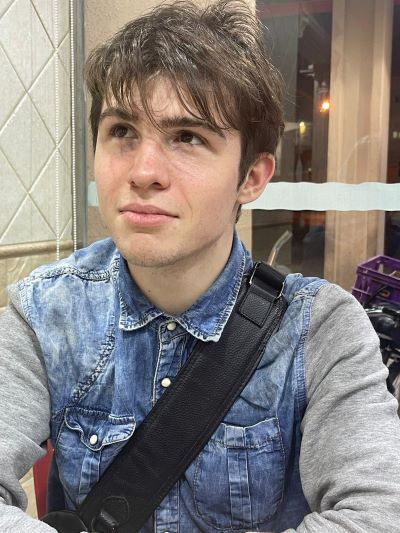This essay was written by Maksym Kostiuk, age 21, from Ukraine, and Iskra Kondi, age 22, from Albania in response to the 2023 Global Voices Essay Contest in Central and Eastern Europe. Maksym and Iskra were awarded an honorable mention for this entry.


If you ask writers and directors to name the main motivator of resilience, many of today's most acclaimed ones will say it is hope. While war has served as the topic of art pieces, hope has been the underlying theme. In art, hope has always been the yang of the yin of war. However, during war there is not pure, inspiring hope, the one that keeps you going every day. Instead, blind unjustified hope is the tool you hold with both hands to learn how to overcome. You continue to do everything you consider right, what you think will help in the future. When 10 million of your 40 million-population country are elsewhere, and you do not know if they will return, you can only blindly hope they will. Because if they do not, what will happen to the country? Without knowing how life is going to be after the war, it is easier to imagine the worst scenario when you have the current destruction of what used to be your entire world as a reference. But how can you go on every day if the future becomes something that you dread?
War has never been a landscape with a rosy filter; it is dirt and grit, claws and teeth. It is not a film with a cyberpunk aesthetic. Even with the advancement of the times, it is still a war movie. It probably will not break records with its ticket sales. Therefore, it may not be perceived as cinematically inspiring enough when I mention the second ingredient for resilience: adopted malice. Either you have your attackers or their doings within sight, or you are outside of the danger zone and encounter the people who support your enemies. It was during my business trip that I first saw people wearing T-shirts with the war symbols of the country that threw bombs over my homeland. At that moment, the world freezes for you; you just want to hurt them. You remind yourself that you are a foreigner there, you can't risk it, and who knows if you have enough heart to actually do it. While having many doubts, there is one thing you are certain about; you do not want them to find any pleasure in seeing your rugged state. In your mind, there is only one thing to wish for them: misery. You try to be strong so that when they fall, you will be healthy enough to hear the thunderous crash of their collapse. You continue to hold on to your "benediction" even more tightly when you think about everyone who will not be there to see it, though they deserve the chance far more than you do.
This brings me to the third ingredient of resilience, survivor's guilt transforming into survivor's gratitude. If you see the fire with your own eyes as part of the unburned ones, while your brothers in arms are no longer on your side, how do you give up and lose courage? And if it was by pure luck that you got out at the right moment, while all your loved ones could not, then how can you not pray, "feet don't fail me now"? Every writer is familiar with the stereotypical plot device where a disposable character is created, eliminated, and then used to convey why the protagonist is so adamant about achieving their goals. Although life is not a book of which you are the protagonist, the narrative formula of someone feeling like they are not justified in their loss of heart because they have received the long end of the stick feels as old as storytelling itself.
While I finally put into words all my thoughts of how war times can be withstood, I remind myself that in 2014 I was just a boy. The same boy—though just a bit more grown up—left Ukraine on February 23, 2013 on a simple business trip and never saw its war. And sure, maybe I am not the best example. Therefore, I can only talk of my small struggles in that most eventful year. A better protagonist would offer a thousand better perspectives on resilience. Meanwhile, maneuvered by my age and experience, I can only offer some, maybe not worthy to be a movie's underlying theme. It is a blind sense of hope for tomorrow to be, at the very least, as good as the past. It is hostility towards everything and everyone who caused your world to collapse, and the mix between guilt and gratitude when you see yourself among the lucky ones, keeping your head above water.